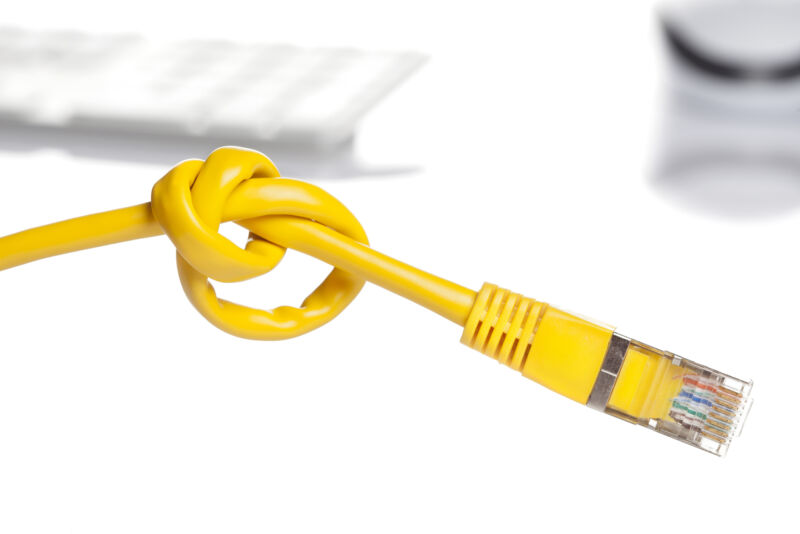
US Senators Ben Ray Luján (D-N.M.) and Cory Booker (D-N.J.) want to ban Internet data caps. The senators today introduced the “Uncap America Act,” which would “prohibit predatory data caps that force families to pay high costs and unnecessary fees to access high-speed broadband,” they said in a press release.
“A broadband Internet access service provider shall not impose a data cap except when tailored primarily for the purposes of reasonable network management or managing network congestion,” the bill says. The proposed law would order the Federal Communications Commission to issue “regulations to define the conditions under which a data cap is to be considered tailored to the purpose of reasonable network management or managing network congestion.”
Data caps that don’t comply with the exceptions would violate the Communications Act. “While certain broadband Internet access service networks may require practices to effectively manage congestion, those practices should be tailored to improve equitable access among consumers,” the bill says. “Unnecessary data caps limit participation in the digital economy and are contrary to the public interest.”
The bill can be expected to attract fierce opposition from the broadband industry and would face long odds of passing through the Senate and House. If it does become law, it would likely prohibit the home Internet data caps imposed by Comcast and others, which clearly exist for financial purposes and not for any network management need.
Data caps defined
While the Luján/Booker bill leaves key details up to the FCC, it provides a comprehensive definition of what counts as a data cap under the proposed law. The bill says a data cap is “a limit on the amount of bits or other units of information a customer of a broadband Internet access service provider may download or upload during a period of time specified by the broadband Internet service access provider before the customer is charged a fee for additional usage; is subject to an increasing cost per bit or other unit of information; is charged for an incremental block of usage; or experiences a reduction of access speed; or that the customer is otherwise discouraged or prevented from exceeding.”
The proposed law would apply to home Internet services and mobile data plans, as it uses a definition of broadband service in US law that includes “mass-market retail service by wire or radio.” But the FCC would be able to define different rules for different types of connections, Luján’s office told Ars.
“As Internet usage continues to be a necessity for work, education, and health care, no family should have to worry about extra fees and costs because of unnecessary limits on their data,” Luján said in the press release. Luján is chair of the Senate Commerce Subcommittee on Communications, Media, and Broadband.
Booker said that “Internet access is a basic necessity and has been increasingly important throughout the coronavirus pandemic. Unfortunately, many Internet providers have imposed predatory data caps, making it difficult for many vulnerable families to access high-speed Internet.” The Uncap America Act aims to ensure that “providers are not taking advantage of their consumers by imposing predatory data caps,” he said.
Caps called “roundabout way to increase prices”
The bill has support from Consumer Reports; Public Knowledge, a consumer advocacy group; and Incompas, an industry lobby group that represents “competitive networks.”
Data caps are particularly harmful to low-income people, Public Knowledge Senior Policy Counsel Jenna Leventoff said in the press release. “The pandemic has proven that data caps are rarely necessary as an economic matter, often operating as a roundabout way for providers to increase prices,” she said.
“Americans need fast, reliable, and affordable Internet connections that are free from the burden of data caps that chill Internet use and make it more expensive,” said Consumer Reports Senior Policy Counsel Jonathan Schwantes. “Where caps are legitimate and justified, so be it. But we can’t allow ISPs to maximize profits at the expense of consumers.”
https://arstechnica.com/?p=1868613

